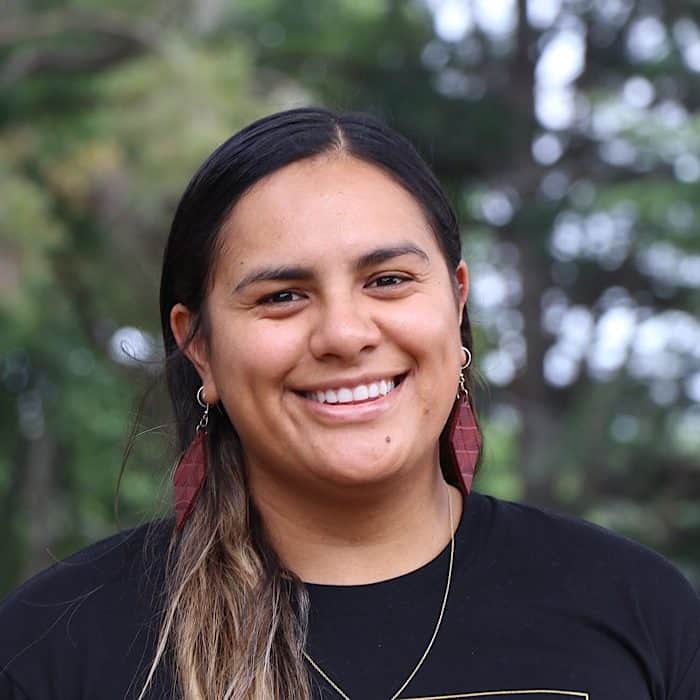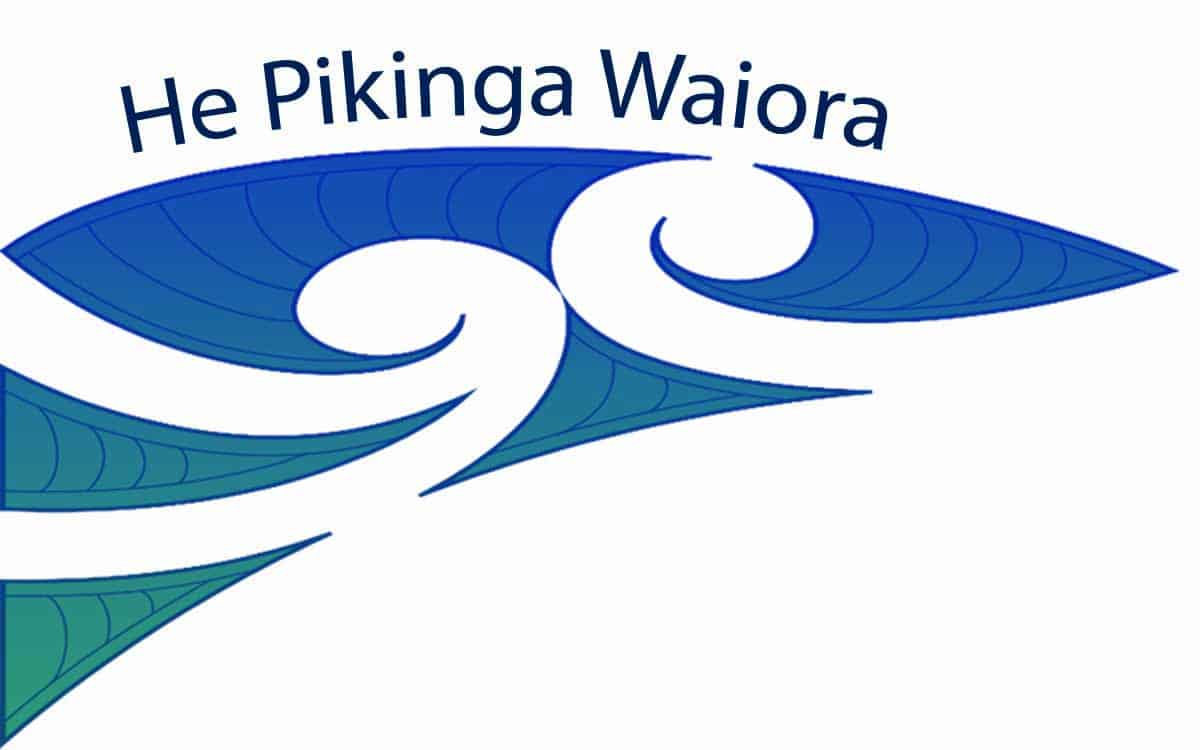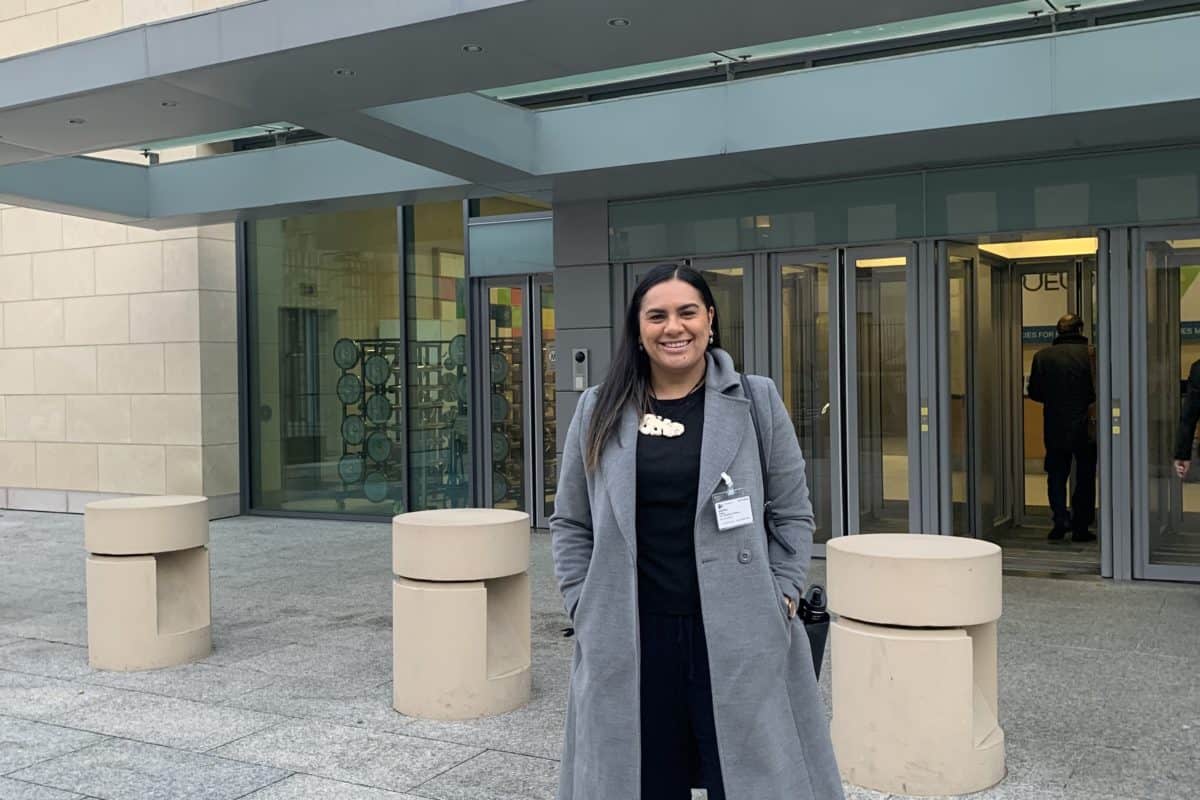Research voices: Truely Harding
22 June 2022
Dr Truely Harding has navigated both Māori and Pākehā worlds her whole life, and this has shaped her determination to change the way that these communities engage with one another in Aotearoa New Zealand.
Attending a Kura Kaupapa Māori (full immersion Māori school), alongside before- and after-school care conducted in English, Truely had to navigate a fine line between Te Ao Māori and Te Ao Pākehā from an early age. At 15 years old she started at Whāngarei Girls High School, and this experience of being “thrown in the deep end” further developed her resilience and strength of character.
Two years later she was appointed Head Girl and on completing high school, Truely headed to the University of Waikato to undertake a degree in Communication. Less than a decade later Truely had completed her degree, as well as a Masters and a PhD in health research supervised by Healthier Lives researcher Professor John Oetzel.
An unexpected journey
Truely has an exceptional ability to “tell a good yarn”, and uses this skill to describe the many ways that she tried to avoid getting into health research. But the opportunities just kept crossing her path. Choosing to do research was also the result of gentle but persistent encouragement from Professor Oetzel, who recognised the huge potential of this talented and eloquent wāhine Māori.
Once Truely commenced her doctoral journey, a programme for Māori and Indigenous PhD students at the University of Waikato (MAI) provided a supportive environment to help develop her academic skills.

“We would meet together regularly for coffee or to have writing retreats and workshops. This was a really safe space for me as a researcher as one, it was Māori and Indigenous; two, it was people who could relate to my struggles and vice versa; and three, it was free to access and a safe space for us to practice being researchers.”
Truely has been greatly inspired by other Māori researchers and academics, who have challenged her to continue with her research journey: “If not us then who? As Māori researchers, if we don’t tell our stories in the way that they should be told, then someone else is going to try and tell them for us”.
Important mahi to do
Truely is very clear about what drives her to pursue a research career.
“I got into research to provide evidence that would change policy around how we engage with Māori and Indigenous.”
Her own life experiences, and that of her whānau, have motivated her to challenge how research with Indigenous communities is conducted, especially in Aotearoa New Zealand.
“First and foremost, I wanted to do this research so I could put more Māori content out there, that was credible, that was peer-reviewed, and that was communicated in a way that non-Māori would understand.”
“I knew that my audience wasn’t Māori. Much of this was common-sense to us, it’s what we do every day, it is how we be, it is our culture. I knew from the beginning that Māori wasn’t who I was trying to speak to.”
“Instead I was trying to share Māori opinions and Māori voices and present them in a way that made other people understand how we feel or what we prioritise, and legitimise it. And is evidence-based and founded on really strong literature.”

Truely concisely describes the key messages that have stemmed from her research, as part of the He Pikinga Waiora project.
“For Māori and Indigenous communities, the process of implementing health interventions is just as, if not more, important than the intervention itself.”
A crucial component of that process is the concept and practice of co-design. And the importance of striving for authentic co-design, in which communities and researchers are equal partners and decision-makers in the research and/or implementation. While this is not always easy, it is an essential process for lasting and equitable health outcomes.
“And yes, working with Māori and Indigenous is hard and it does take longer, but the outcomes are more sustainable.”
Changing how we do things
Truely has her own examples of not being listened to by health professionals and, as a result, not wanting to engage with the health system. This concerns her greatly, that even as a confident and well-educated person, she still has these experiences.
“How am I going to encourage my whānau to do something that I don’t even want to do.”
This highlights for her that things need to change in the way that health professionals interact with Māori. Truely’s current postdoctoral research is focusing on how to implement research findings. In particular she is keen to encourage the reciprocal relationships and communication needed for health professionals to better hear what their patients are trying to share with them.
Advice for future Māori researchers
Truely is keen for more rangatahi to learn about research as a career, and to have research discussed in schools as a future job option, as she didn’t realise it was even a possibility until she started her PhD.
“I never thought that I was going to do a PhD. I didn’t know that this was the direction that my life was going to go in”.
But she sees that a career in research fits really well with the attributes of her community.
“There are so many ways to do research. And Māori are natural researchers. Always inquisitive, always ask a lot of questions and want to know how things work. We love a wānanga – love to talk about what’s happening and dissect the topics, look at it from different angles, and appreciate the different experiences that come from those different angles. And we love to be storytellers.”
Her advice to future Māori researchers, to those who feel like they have a story to tell?
“If you want to be a researcher, have confidence in the stories you are telling and the ideas that you have, as that is how research starts.”
Read more about the He Pikinga Waiora project.
Other articles in this series:
Sign up to our Newsletter
"*" indicates required fields


